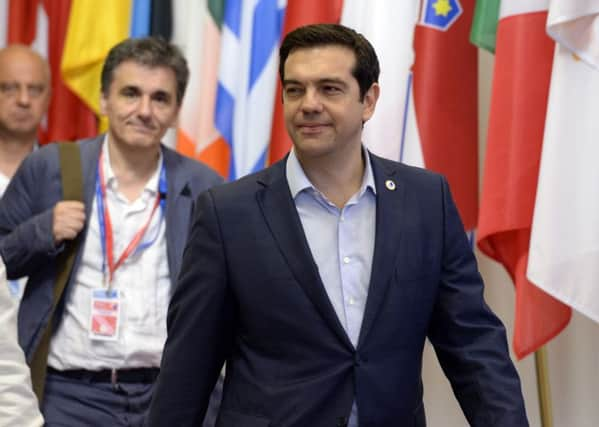Analysis: Pragmatism rules across eurozone


Despite the emphatic victory of the “No” vote against austerity in last week’s referendum, Alexis Tsipras appeared more committed than ever to meet the creditors’ elusive demands, even if that meant crossing out many of his party’s red lines and pre-electoral pledges.
An immediate explanation for this U-turn was the overwhelming support of the Greek population (about 80 per cent) for continuing eurozone membership and the unanimous, at last, call by all systemic parties in Greece to support a deal that would keep Greece within it. Tsipras was left with little room for manoeuvre.
Advertisement
Hide AdAdvertisement
Hide AdMore importantly, the Greek government had anticipated that the geopolitical cost of Grexit would scare European leaders enough to offer Greece a better deal. Grexit did not scare the Germans; in fact it was actively pursued by its finance minister, Wolfgang Schäuble. At the very end, pragmatism prevailed and it is possible to find gains for all. Greece avoids the abyss and medium-term chaos that an exit from the eurozone would ensue. The IMF and the ECB get to get their money back, almost €7 billion over the next two months. Germany gets to dictate the terms of the deal and send a strong, albeit counter-productive message, that a revolt on the austerity orthodoxy will be punished. France re-emerges as a leader within the eurozone, not a side-kick. And the rest of Europe can breathe a sigh of relief knowing that the fences against contagion will not need to be tested on this occasion.
A major government reshuffle now expected in Greece over the next few days, with up to 30 Syriza MPs unwilling to support the agreement. Passing the urgent new legislation by tomorrow is not in question, as other parties will vote for it. Greek society, however, will have to endure another round of painful cuts and VAT increases. Whether their sacrifices will be justified or not and, in turn. Whether Greece can finally start moving beyond the crisis, will largely depend on the ability of the Greek government to implement structural reforms, and on the willingness of creditors to support the recovery effort, not least by acknowledging the elephant in the room: the sustainability of the Greek debt.
l Dr Georgios Karyotis is senior lecturer in international relations at the University of Glasgow